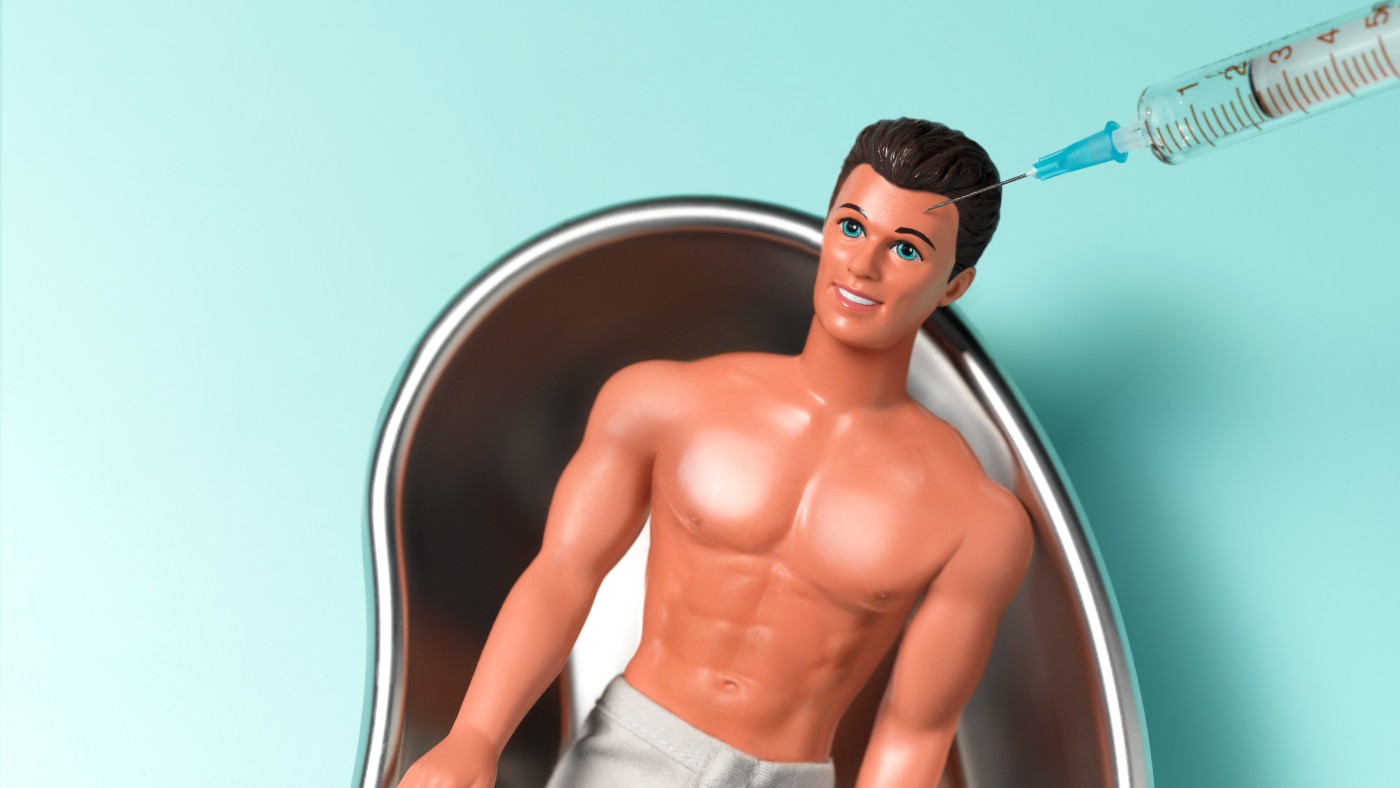The rise of Brotox: why more men are getting cosmetic surgery
Men who, like Barbie’s male sidekick, don’t feel ‘Kenough’ are increasingly getting cosmetic treatments

A free daily email with the biggest news stories of the day – and the best features from TheWeek.com
You are now subscribed
Your newsletter sign-up was successful
The number of men turning to Botox and other cosmetic procedures is surging, latest figures show.
According to the American Society of Plastic Surgeons (ASPS), the amount of money spent by men on Botox has grown by 400% since 2000. The increase followed a 29% hike in demand for cosmetic treatments and non-surgical procedures among men between 2000 and 2018.
The rise of so-called Brotox is also being reported in the UK, where the male grooming industry is worth an estimated £500 million a year. And a “new wave” of demand is believed “to be coming off the back of the ‘Barbie’ movie”, said Metro.
The Week
Escape your echo chamber. Get the facts behind the news, plus analysis from multiple perspectives.

Sign up for The Week's Free Newsletters
From our morning news briefing to a weekly Good News Newsletter, get the best of The Week delivered directly to your inbox.
From our morning news briefing to a weekly Good News Newsletter, get the best of The Week delivered directly to your inbox.
How prevalent is Brotox?
The hashtag #brotox “boasts over 17 million views”, the New York Post reported, as “men, their doctors and even their partners proudly show off their Botox treatments”.
Some plastic surgeons are now establishing treatment centres specifically catering to men.
One such centre is Marina ManLand in Los Angeles, a “macho grotto” that promises “a discreet and safe setting” where each customer can get Botox treatments “without suffering any damage to his masculinity”, said The Times’s New York correspondent Will Pavia.
Other centres and salons, such as the Get Refreshed spa in Miami, Forbes reported, have “mancaves” for men who “want to incorporate Botox into their lives”.
A free daily email with the biggest news stories of the day – and the best features from TheWeek.com
Celebrities “aren’t immune from this trend”, said DMarge. Plastic surgeons told the men’s lifestyle site that more and more male stars appeared to be “jumping on the Brotox bandwagon”.
Yet while “cosmetic procedures have never been more acceptable in society”, the site added, high-profile men are “still not very forthcoming when it comes to talking” about them, which can be “harmful” as men face “increasingly unrealistic body image standards”.
Why has demand surged in recent years?
The beauty industry has reached a point of “total saturation when it comes to making women feel insecure about their appearance”, said The Guardian. So the focus has now shifted to “making men feel so suffocated by constant unobtainable images that they’re forced to spend money in a doomed attempt to hush their nagging sense of self-hatred”, the newspaper suggested in a slightly tongue-in-cheek analysis.
New York-based plastic surgeon Dr Dara Liotta told Slate’s Luke Winkie that about a fifth of her patients were men. “Her theory” on the uptick in male demand, wrote Winkie, is that a new generation “have grown up in an environment where plastic surgery has become more accepted and gender-neutral, and therefore more relevant to their own individual pursuits of happiness” .
The box-office success of the “Barbie” is also credited for the fresh surge in demand from men for so-called “tweakments”. In the movie, the titular doll’s sidekick Ken laments not feeling “Kenough” and talks about his “blonde fragility” .
“Ken can be seen as an icon of the ideal male body,” aesthetics practitioner Shelly Woods, founder of Skin Techniques, told Metro. “The knock-on effect of this is that many men look to have aesthetic treatments like Brotox to improve their image.”
Other experts have pointed to ageism in the workforce. Once an issue more “commonly mentioned by women”, said HuffPost, ageism in the labour market increasingly “affects men as well“.
“Covid-19 also changed things,” the site added. According to Texas-based plastic surgeon Bruce Hermann, the Brotox trend was fuelled by the “Zoom effect”, a phenomenon “whereby people working from home saw themselves more frequently on camera and started to notice things that made them look more aged”.
A growing chorus of voices have expressed concerns about how unrealistic beauty standards are impacting both men and women, mentally and physically.
A recent UK study found that of a total of 655 respondents, 79% had experienced an adverse event after having Botox. Although most of the respondents were women, aesthetics practitioner Woods told Metro that some men also “suffer with side effects such as anxiety and panic attacks”.
“To help prevent any complications like this, it is imperative Botox is administered correctly using the licensed dose,” Woods added.
Despite the potential risks, many experts believe the Brotox trend is here to stay. “The percentage of men getting Botox will increase slightly each year,” Hermann predicted.
Rebekah Evans joined The Week as newsletter editor in 2023 and has written on subjects ranging from Ukraine and Afghanistan to fast fashion and "brotox". She started her career at Reach plc, where she cut her teeth on news, before pivoting into personal finance at the height of the pandemic and cost-of-living crisis. Social affairs is another of her passions, and she has interviewed people from across the world and from all walks of life. Rebekah completed an NCTJ with the Press Association and has written for publications including The Guardian, The Week magazine, the Press Association and local newspapers.